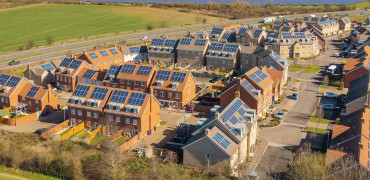Keir Starmer is promising a major and ‘immediate’ shakeup of housebuilding and planning in particular, and to ‘Get Britain Building Again’ with 1.5 million homes the eye-catching target.
We have heard this before, however not from an incoming Labour government, at least for a while.
Three days until the polls open for the Election, and we are being told it’s a foregone conclusion, the Tories have comprehensively stitched themselves up.
But is it?
If Sir Keir is to walk into No.10 armed with a hefty majority, as many predict, he might have the firepower to push through some fundamental, and perhaps game-changing reforms.
But is Labour familiar enough with the realities of the construction landscape in 2024, as well as the often poisonously vengeful nature of some NIMBY constituents?
I applaud the sense of endeavour but fundamental change won’t come easily
A blitz and a boost
Labour’s shopping list is fairly fulsome - a “blitz” of planning reform to deliver on buy and rent homes, and produce the “biggest boost to affordable housing in a generation.”
As well as the immediate action promised to update the NPPR, including “restoring mandatory housing targets,” they will “reform and strengthen the presumption in favour of sustainable development.”
There will also be a “planning passport” for urban brownfield sites, meaning fast-track approval of high-density housing, and “first dibs for first-time buyers,” thanks to its Freedom to Buy scheme which will underwrite mortgages.
They say they will ensure that “local voice” is brought into schemes, and prioritise new towns, “unleash” mayors and combined local authorities with new devolved powers to deliver development, and open up “grey belt” sites for development.
Meagre recent completions
The Conservatives had begun to redress the long-term underperformance of housebuilding post-Covid, with around 210,000 homes completed in the year to March 2023, but completion rates have since fallen off a cliff.
So far in 2024 they have been atrocious, with a meagre 26,240 recorded in the first quarter. And on one hand, 230,000 planning consents were granted in 2023, while on the other, consents had dropped successively over five years, meaning planning is lagging behind demand.
Labour have correctly pinpointed the problems, such as two-thirds of planning authorities not having up to date local plans. Councils are in turmoil, with understaffed planning teams, and a dearth of funds meaning some are even facing bankruptcy.
We need quick, possibly fairly messy answers, quickly. Labour promises action “in their first days and weeks to rescue the housing system.”
Everyone’s happy?
While they say they want to increase “local voice,” that doesn’t include supporting all voices opposing developments.
Labour’s policy includes “challenging those who question if the homes people need should be built at all.”
How will this work, will they issue compulsory orders to approve schemes, over-ruling local planning authorities and community objections?
Shadow Chancellor Rachel Reeves last year announced they would “quickly draw up and agree local plans, recruiting hundreds of extra planners.”
Good luck with that, however they seem to have gone a bit quiet on any further detail on planning reforms in the run up to the Election, to avoid scaring the NIMBYs.
Things might be somewhat more challenging for already beleaguered planning teams post-Election, with Labour looking to “intervene to approve new homes in poorly performing areas,” using call-in powers “in the most extreme cases.”
From a housebuilding stance, I applaud the sense of endeavour and how Labour are tying the aims to growth messages, but fundamental change to planning locally won’t come without some blood on the carpet.
Figuratively speaking, hopefully, rather than literally.
James Parker is editor of Housebuilder and Developer magazine




